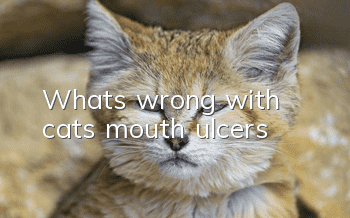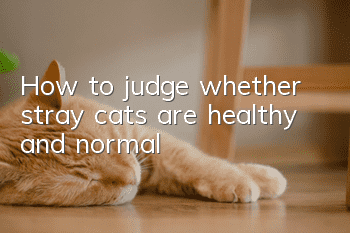What’s wrong with cats’ mouth ulcers?

Causes of cat oral ulceration:
1. Feline leukemia virus infection, feline HIV infection, feline calicivirus infection, and feline herpes virus infection.
2. Cat nutritional factors: lack of vitamins, especially B vitamins, and lack of trace elements such as zinc and selenium.
3. Oral ulcers are caused by systemic diseases in cats, such as uremia, chronic renal failure, kidney disease, diabetes, hypothyroidism and hypoparathyroidism.
4. Chronic inflammation caused by trauma. Accidental ingestion of wood chips, iron wire, fish hooks, burrs, sewing needles and other foreign objects can puncture the oral cavity, causing infectious inflammation; or ingestion of certain irritating drugs or chemicals can directly cause corrosive inflammation and burn inflammation in the oral cavity. .
5. Certain oral diseases, such as squamous cell carcinoma, gingivoma, etc., and tooth and gum diseases such as dental caries, tooth abscess, dental calculus, gingivitis, gingival hyperplasia, eosinophilic granuloma, etc.
The treatment of cat oral ulcers is divided into two steps:
The first is to clean the mouth and disinfect the infected bacteria, fungi, and viruses. Secondly, treatment is given based on different causes, such as nutritional factors and vitamin supplements. If the cause is gingivitis, tooth extraction may be involved. Antibiotic drugs (amoxicillin, metronidazole, Sono, doxycycline, clindamycin, etc.). Iodine preparations (iodine glycerol) are available, but iodine is toxic to cats and cannot be used for long periods of time. Lysozyme drugs are regarded as a new way to treat oral infections and can kill most oral infectious bacteria. However, some lysozyme drugs are egg white lysozyme, which is a heterologous protein for cats and may cause immune reactions.
- How to choose a Sphynx cat
- Why do cats become infected with parasites? How cats become infected with parasites
- Can ragdoll cats catch mice?
- How to improve your cat’s body immunity?
- Cats are shedding seriously. It is very important to find out the cause of hair loss.
- This is how cats are trained at home!
- Why do permed curly cats need to be neutered?
- Should cats with folded ears be fed chondroitin?
- Will a 20-day-old kitten defecate on its own?
- How to raise a one-month silver cat



